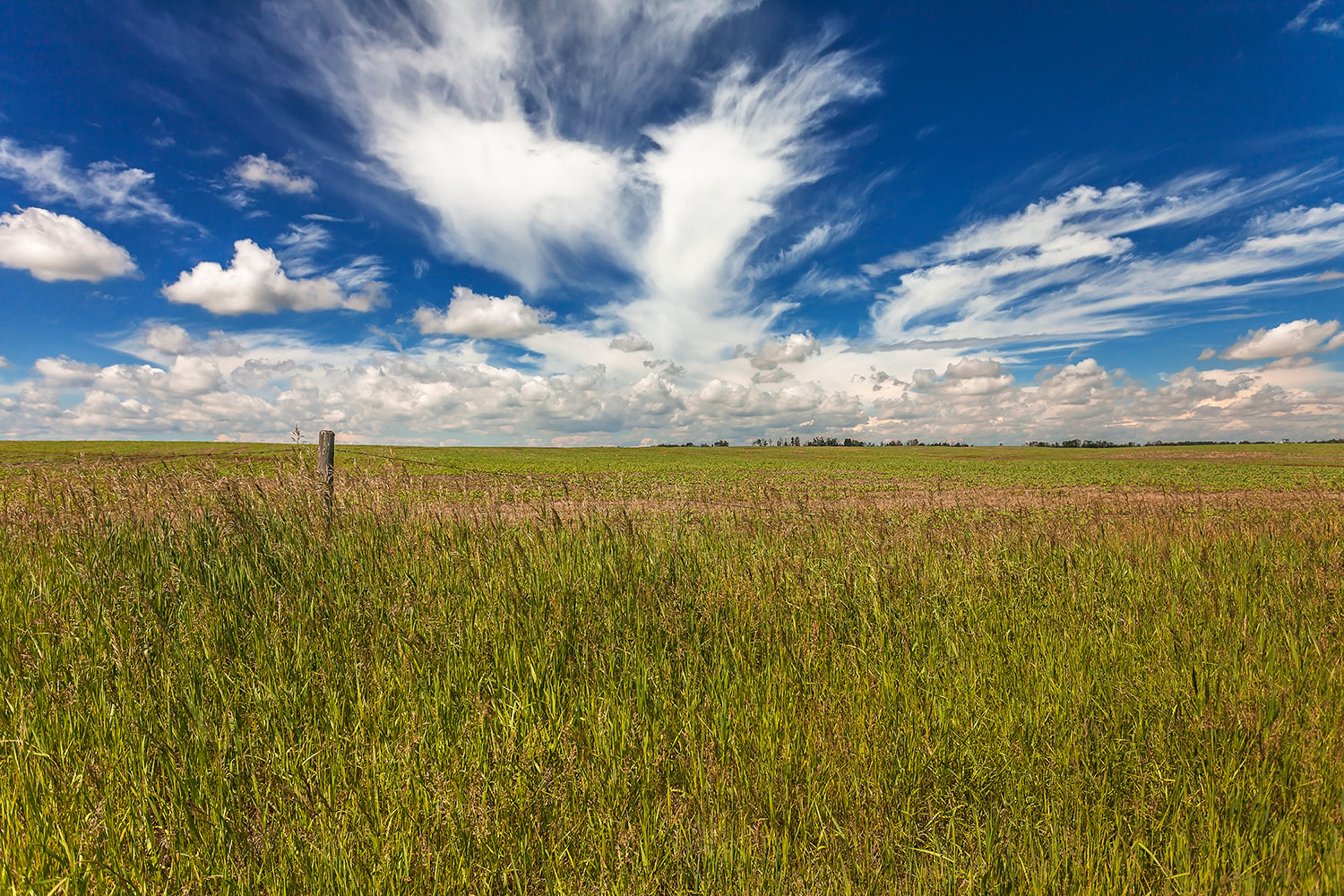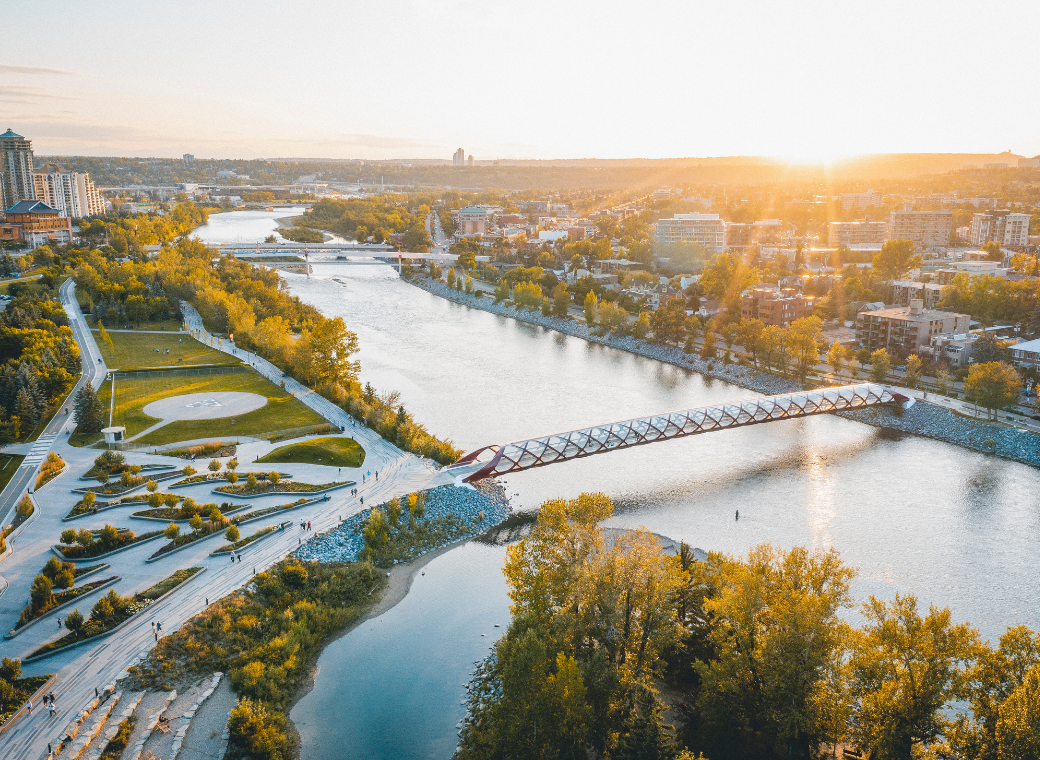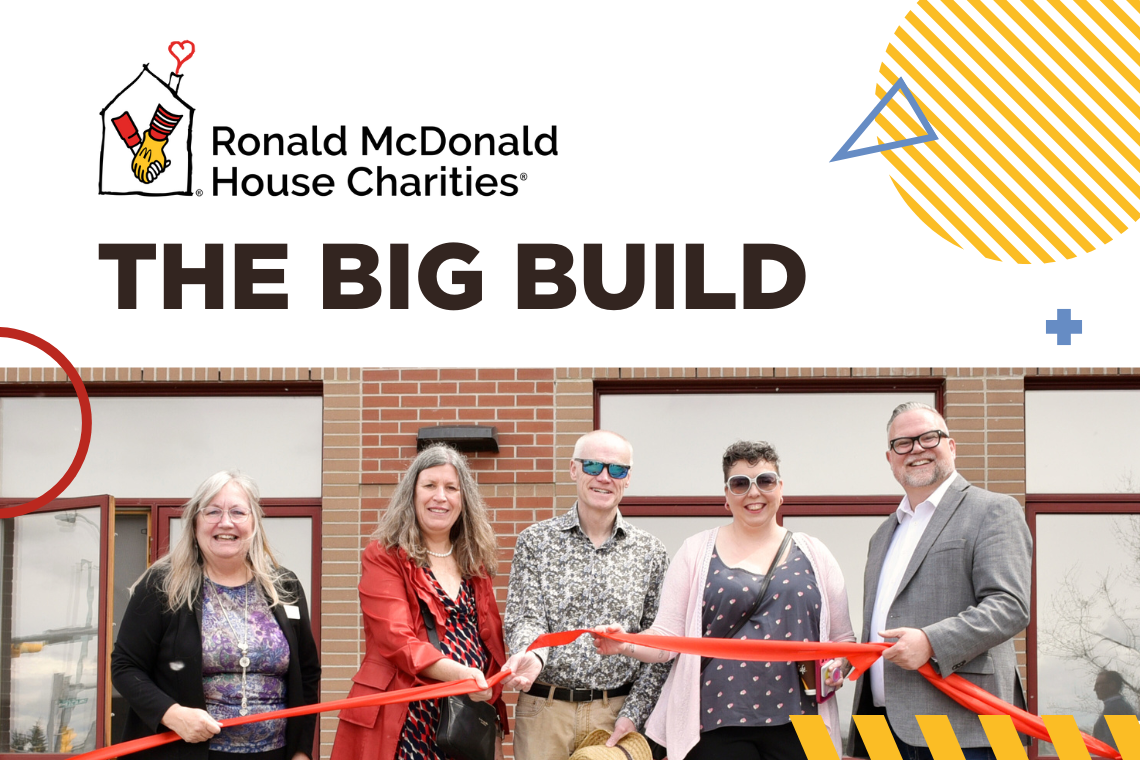
Based on the Real Estate Investment Network’s Real Estate Cycle Scorecard and Clock, Calgary is currently well-suited to a “buy and hold” investment strategy, which is good news for land buyers.
Getty Images
Nov. 29, 2017 | Geoff Geddes
Promised land
Despite lack of liquidity, land remains a solid investmentAt first glance, buying empty space might sound like the road to ruin. But for many investors, land has become a path to a balanced, and profitable, portfolio. While that doesn't mean it's for everyone, land is certainly worth a closer look from investors weighing their options.
Land as an investment can take many forms: institutional investment by life insurance companies and pension funds, farmers renting out land for revenue, active farmers purchasing land for future investment or expansion, and developers/investors buying for future residential or commercial development.
"In most cases, people buying land are sophisticated investors looking for long-term opportunities, or those with ties to land, such as farmers," said Ben Van Dyk, a residential, commercial and agricultural REALTOR® with the Real Estate Centre.
Over the last decade, Van Dyk has seen rising interest in land, especially with commercial investment groups.
"The last two years there were pockets of crop failures due to early snow and frost that impacted farmland as an investment, but farm income is now at an all-time high, so it's still a great choice," he said.
As an investment vehicle, Van Dyk likens land to gold in that it's a solid asset that can hedge against inflation, with the bonus of an annual return in the 1-4 per cent range.
"Land is an awesome way to position yourself in the marketplace, and you can even apply for a mortgage on it in some situations as a way of leveraging your holdings," he said.
"In most cases, people buying land are sophisticated investors looking for long-term opportunities, or those with ties to land, such as farmers." - Ben Van Dyk, REALTOR®
Most importantly for many investors, the cost to purchase raw land is significantly lower than buying property. Also, holding costs are minimal, which helps mitigate the biggest drawback: lack of liquidity.
"With stocks, you can buy or sell depending on the market outlook," said Van Dyk. "Land doesn't offer an instant turnaround, so you must be willing to wait for your profit or even to get your money back."
For those considering land, there are some basic questions to answer.
"First, decide on your investment window. For land, short-term is two years and long-term is 10 years or more. The next step is to review your investment objectives. Do you want a higher annual return, or greater profit when you sell? Land closer to a population centre may have a lower annual return, but more potential for development down the road," he said.
Then there's the matter of risk tolerance. If you're buying farmland in an outlying area, there might be a higher chance of crop failure in areas more prone to hail, frost or drought and less competition for rental/lease land, so it pays to do your research.
One place to start that research is the Real Estate Investment Network (REIN). With a presence in Calgary, Edmonton, Vancouver and Toronto, REIN provides real estate investment education, analysis and research to homeowners and investors.
In October, REIN released a new report on the best centres in Alberta for homebuyers and real estate investors based on economic and demographic analysis of 36 factors.
"Calgary ranked number two for several reasons," said Jennifer Hunt, vice-president of REIN.
"Historically, it possesses one of the highest GDPs of all census metropolitan areas and has experienced slow, quiet and steady employment growth since 2016. While it is very susceptible to shifts in the energy sector, Calgary is buffered by the inevitable diversity of a larger centre."
Based on REIN's Real Estate Cycle Scorecard and Clock, Calgary is currently well-suited to a "buy and hold" investment strategy, and that's good news for land buyers.
"If you have the knowledge and ability to use approaches like purchasing land and getting it rezoned, you can certainly have success," said Hunt.
Whatever your background, Van Dyk suggests talking to a professional who knows the industry and developing a plan of action to achieve your investment objectives.
That way, when your friends chuckle at that purchase of empty space, you'll be able to have the last laugh.
Tagged: Ben Van Dyk | Calgary Real Estate News | Feature | investment | land | real estate investment network | REALTOR | REIN | Surrounding Areas




